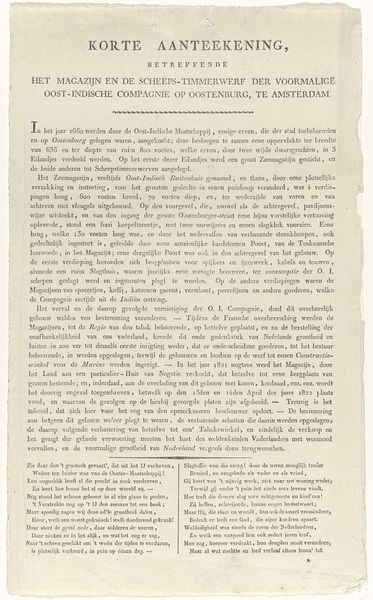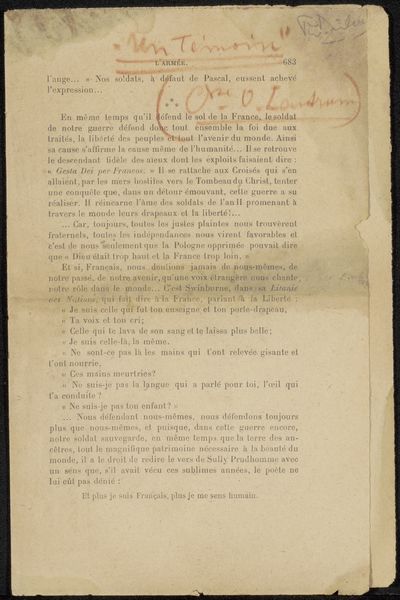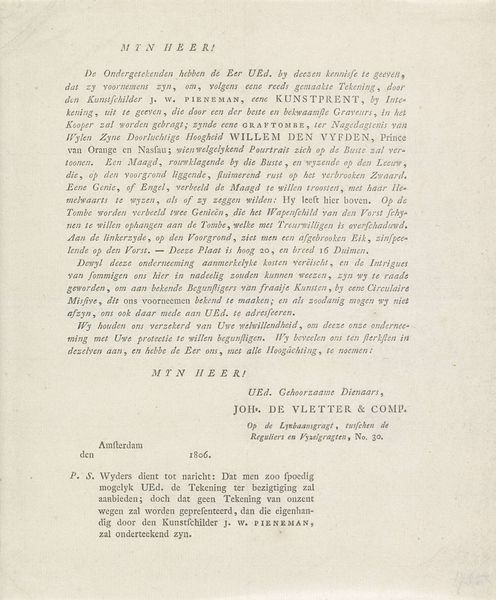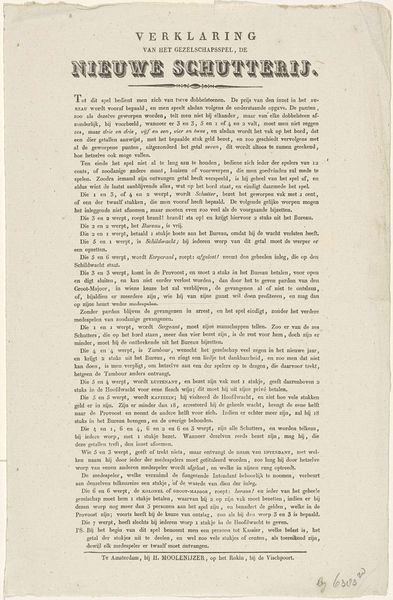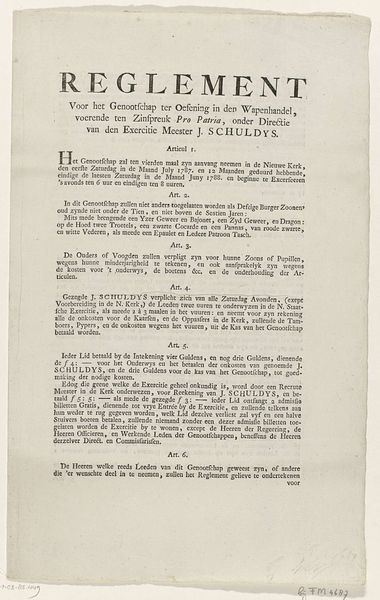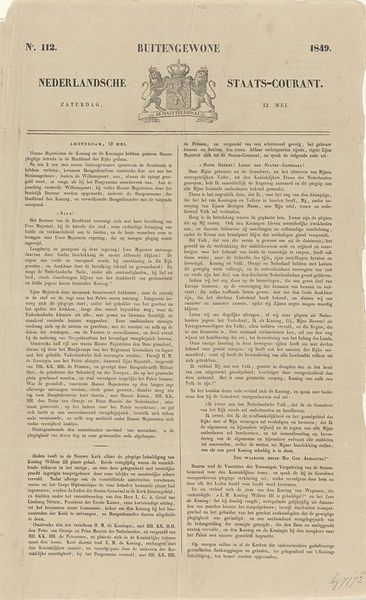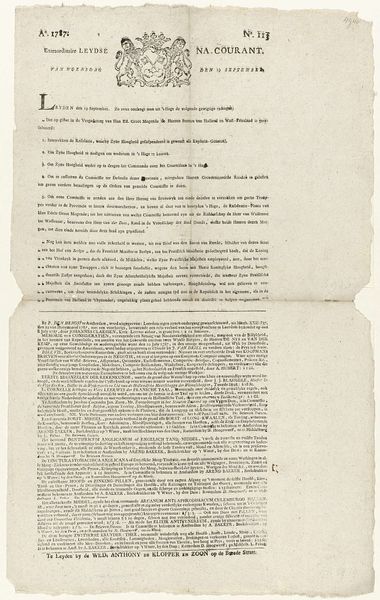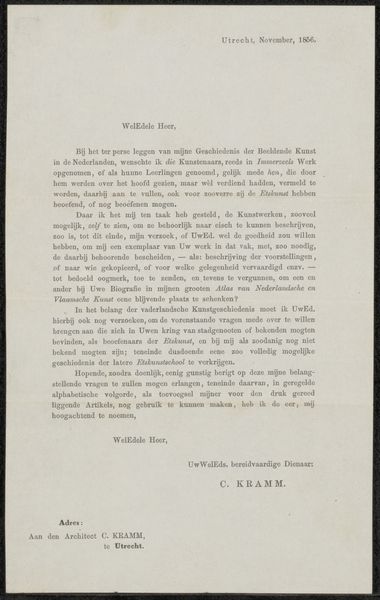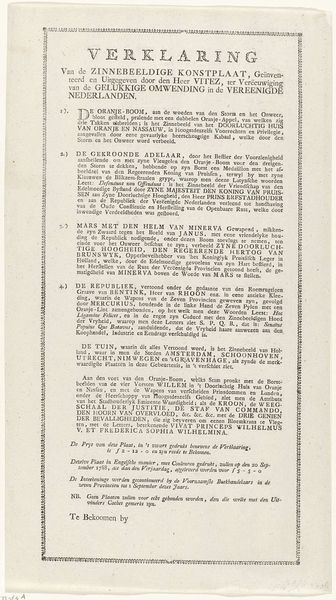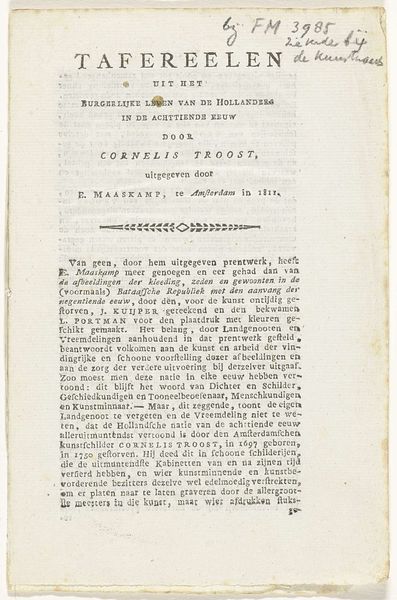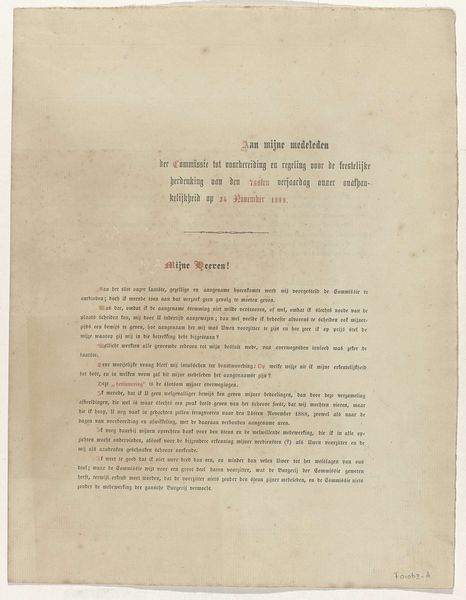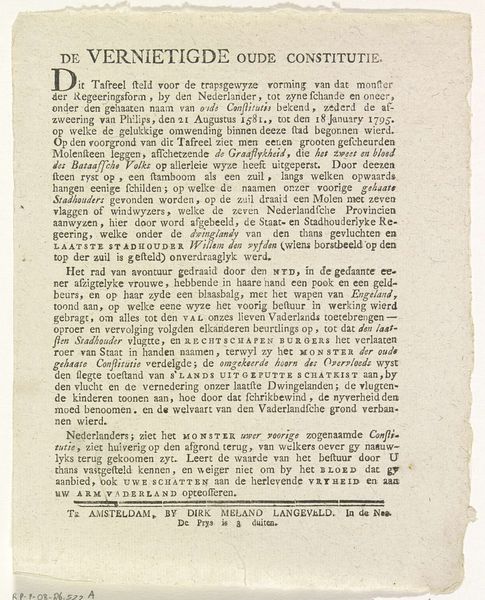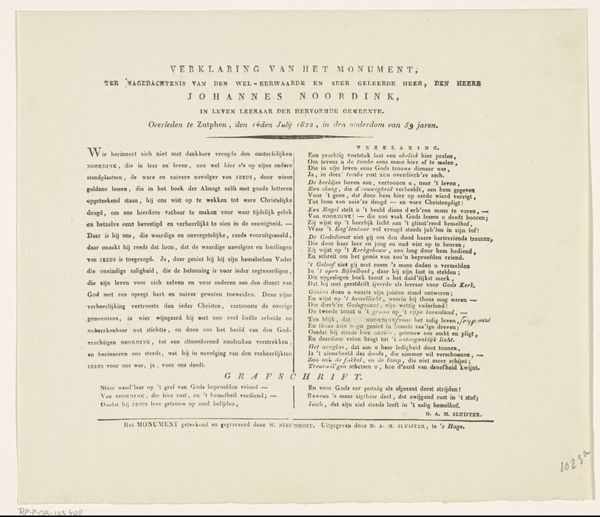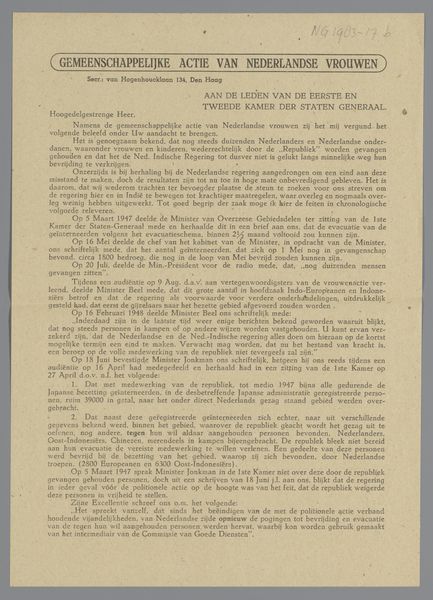
Proclamatie van de koning met oproep tot vrijwillige wapening, 1830 Possibly 1830
0:00
0:00
anonymous
Rijksmuseum
print, textile, poster
#
script typeface
#
dutch-golden-age
# print
#
hand drawn type
#
textile
#
fading type
#
stylized text
#
thick font
#
history-painting
#
handwritten font
#
classical type
#
poster
#
word imagery
#
historical font
#
columned text
#
calligraphy
Dimensions: height 388 mm, width 227 cm
Copyright: Rijks Museum: Open Domain
Curator: This is a print, likely from 1830, entitled "Proclamatie van de koning met oproep tot vrijwillige wapening" which roughly translates to "Proclamation of the King with a Call to Voluntary Armament". It resides in the Rijksmuseum's collection. Editor: Well, immediately it strikes me as… well, urgent. The stylized text, almost crowding the page, feels like a desperate plea blasted out across the kingdom. There's a tangible sense of a nation on the brink. Curator: Indeed. What we see is a direct appeal from William, Prince of Orange Nassau, to the inhabitants of the Southern Provinces of the Kingdom, which, contextually, would have been during the period of unrest leading up to Belgian independence. Editor: So, essentially, a king trying to rally his troops – or, more precisely, imploring civilians to become troops. It’s fascinating how the very *materiality* of the print participates in this. Look at the fading type and somewhat crude impression – probably printed quickly, en masse. A disposable object carrying a non-disposable message. Curator: Precisely. The text itself is carefully worded, appealing to shared history and promising reform. Note how the king offers concessions— addressing grievances about governance, language, and representation, all in exchange for unity and defense of the realm. Editor: But the labor… I can’t help but wonder about the hands involved in producing these posters. This wasn’t high art; this was mass communication. Think about the typesetters, the press operators… all churning these out, probably under considerable pressure, participating in shaping this historical moment through their often-invisible labor. It makes you consider how social and labor elements were really crucial in making political narratives like the "Proclamation" effective. Curator: A very valid point. It forces us to remember that even official pronouncements were filtered through the efforts, beliefs and abilities of countless people, a stark counterpoint to the royal decree it proclaims to deliver. In the end it reveals its historical moment – caught in time. Editor: And from the tactile nature of ink on paper to ideas spreading out into cities and farms; even now, the history of the Netherlands’ southern region keeps living as material legacy for people to discover and feel something special about it. Curator: A tangible reminder, yes. Hopefully that touchpoint in time stimulates awareness and helps inform future directions too.
Comments
No comments
Be the first to comment and join the conversation on the ultimate creative platform.
